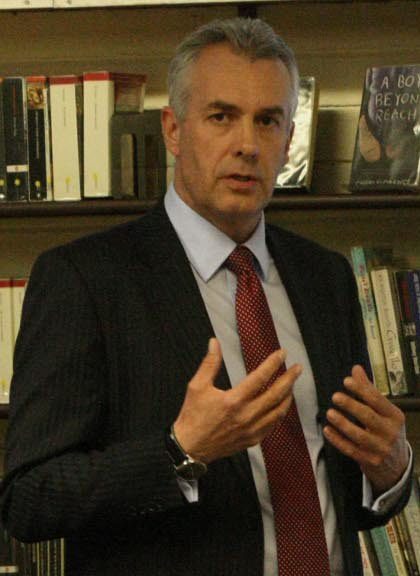Forth Energy, the company behind the biomass proposal for Dundee harbour, has insisted there is no bias in its favour from the government’s Energy Consents Unit (ECU).
The firm was responding to criticism by campaigners at the handling of planning objections by the Scottish Government.
Friends of the Earth Tayside, Biofuelwatch and West End Community Council were unhappy that only two objection letters were published by the ECU and claimed other objections were not acknowledged. They were also displeased that members of the public and non-government organisations were held to a four-week consultation period while Forth Energy was allowed to publish new documents at the end of that period.
On Sunday a spokeswoman for Forth Energy said there was no question of the ECU being biased towards the company and insisted correct statutory procedure was followed. She said Forth Energy advertised the application on August 17 last year, with a closing date of September 24.
Forth Energy later submitted an addition to the application which was re-advertised at the same time as the second consultation period required once the first statutory consultee responded. The two events were re-advertised together to avoid having two consultation periods running in parallel.Beyond the requirementsThe re-advertisement was for two weeks from November 8 and the company went beyond the requirements of the legislation. It notified, either by email or letter, all those on the company’s database who had expressed an interest in the application. The consultation period for the additional information ended on December 17.
The spokeswoman said that if people replied after the consultation period closed there is a risk these responses will not be taken into account.
The Scottish Government confirmed that it does not publish details of all representations but every one received is recorded and forms part of the determination process.
Dundee City Council voted in January for Scottish ministers to defer plans for the biomass plant until more information is available about its impact on public health and the environment.
If the government is not minded to accept the council’s recommendations or impose conditions on air quality, the council will insist on its response to the Forth Energy scheme being treated as an objection. This would trigger a public inquiry, allowing all aspects of one of the most emotive planning issues to affect the city in many years to be investigated.
The Dundee proposal was described by Forth Energy managing director Calum Wilson as a £320 million investment for the city that would be worth £26 million to the local economy each year. It would create 300 to 500 jobs during the construction phase, 40 permanent jobs thereafter and 30 jobs in the port.
It has also been claimed it would pave the way to Dundee securing a future in the renewable energy industry with several hundred jobs. It has been proposed for the land south of the Nynas refinery at King George V Wharf and will create an opportunity to move away from electricity and heat generated from fossil fuels to a lower carbon source.
Each plant would produce enough electricity to heat 160,000 homes but require a 100m chimney at each location. It would burn a range of wood-based material and not just wood from forests, with much of it being shipped in.
The Scottish Environment Protection Agency has no objection in principle but has warned it would add to nitrogen dioxide levels that are already above the legal limit in that part of the city. However, the forecast increase would be so small that there would be no consequence for public health.
Scottish Natural Heritage said there would be effects on wildlife in the estuary but did not consider there would be significant detrimental impact on designated sites.
NHS Tayside has raised concerns about possible health risks related to the proposed plant.
A number of objectors are opposed to the plant on health and architectural grounds and at January’s meeting these views were endorsed by a number of councillors.
